We are excited to reveal some preliminary results of our ongoing Real-World Psilocybin Mushroom Study.
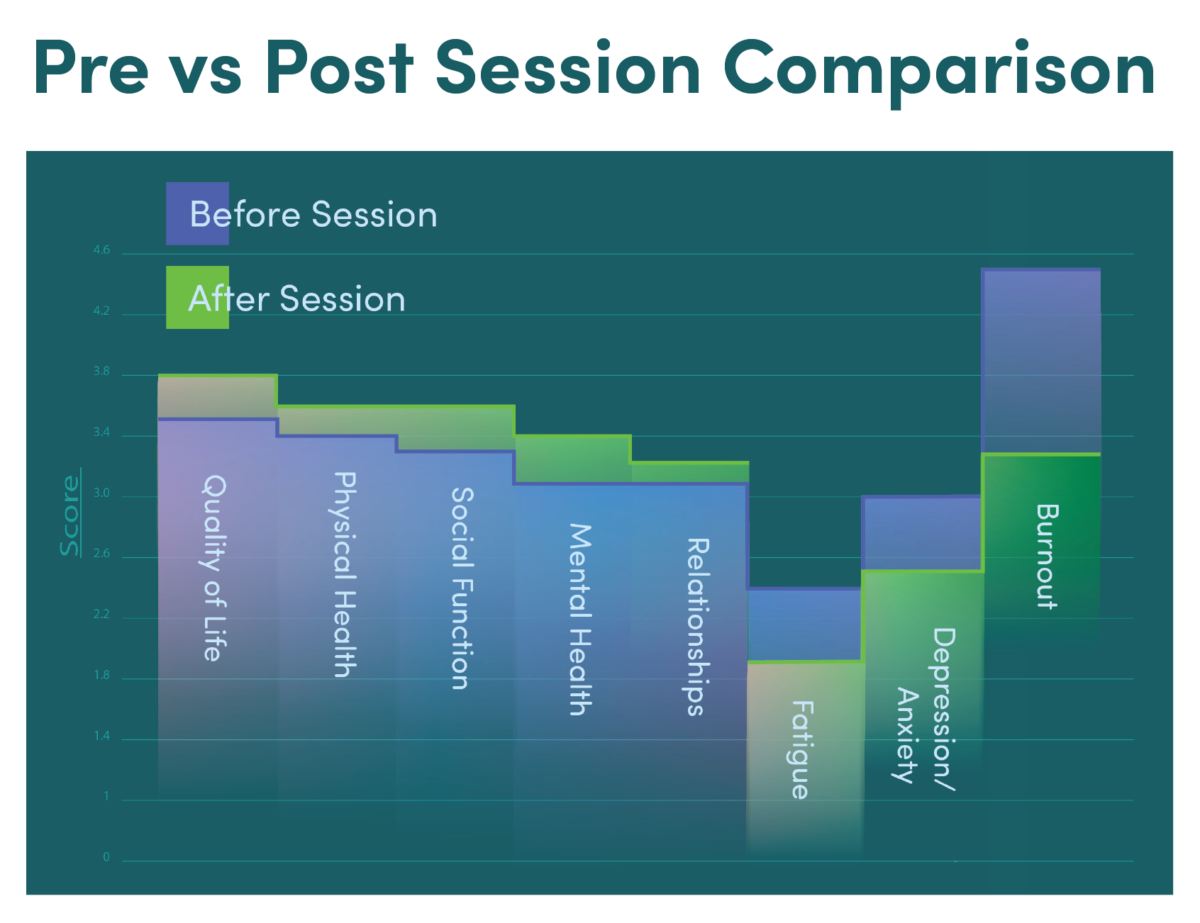
Editor’s Note: Although the findings in this blog were accurate at the time of publication, many of the stats have been updated since this article was originally written in 2020. Please visit our psilocybin study page for the latest information on research outcomes and published academic papers.
– –
We are excited to reveal some preliminary results of our ongoing Real-World Psilocybin Mushroom Study which we are conducting in collaboration with the Center for Psychedelic and Consciousness Research at Johns Hopkins Medicine.
After about four months of recruitment, we have around 2500 participants from all over the world.
We can’t express our gratitude enough for those who are willing to share their experiences with psilocybin with us. The data we are collecting is pushing forward our understanding of how people use psilocybin in the real world. The following preliminary statistics capture some of the more salient findings:
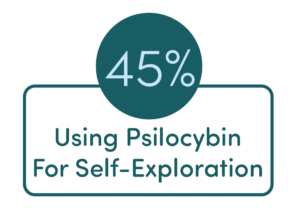
In agreement with the larger body of psychedelic research, it appears despite psilocybin being used in a recreational setting (7%), people are primarily using psilocybin for self-exploration, mental health (25%), and therapeutic purposes (10%).
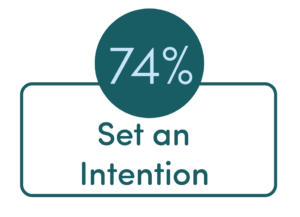
In line with the more goal directed use of psilocybin among our participants, the great majority set an intention for how they would approach the psilocybin experience.
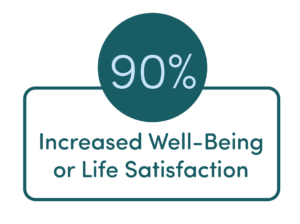
An overwhelming majority of people reported beneficial effects of their psilocybin use.
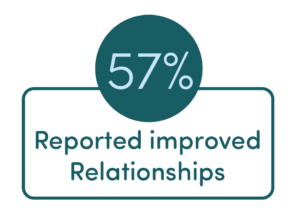
Over half of participants reported improvements in interpersonal relationships they attribute to their psilocybin experience.
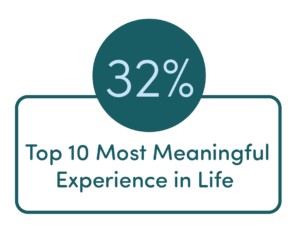
Similar to previous findings by Roland Griffiths at Johns Hopkins a large section of our participants rated their psilocybin experience as among the most meaningful experience of their lives.
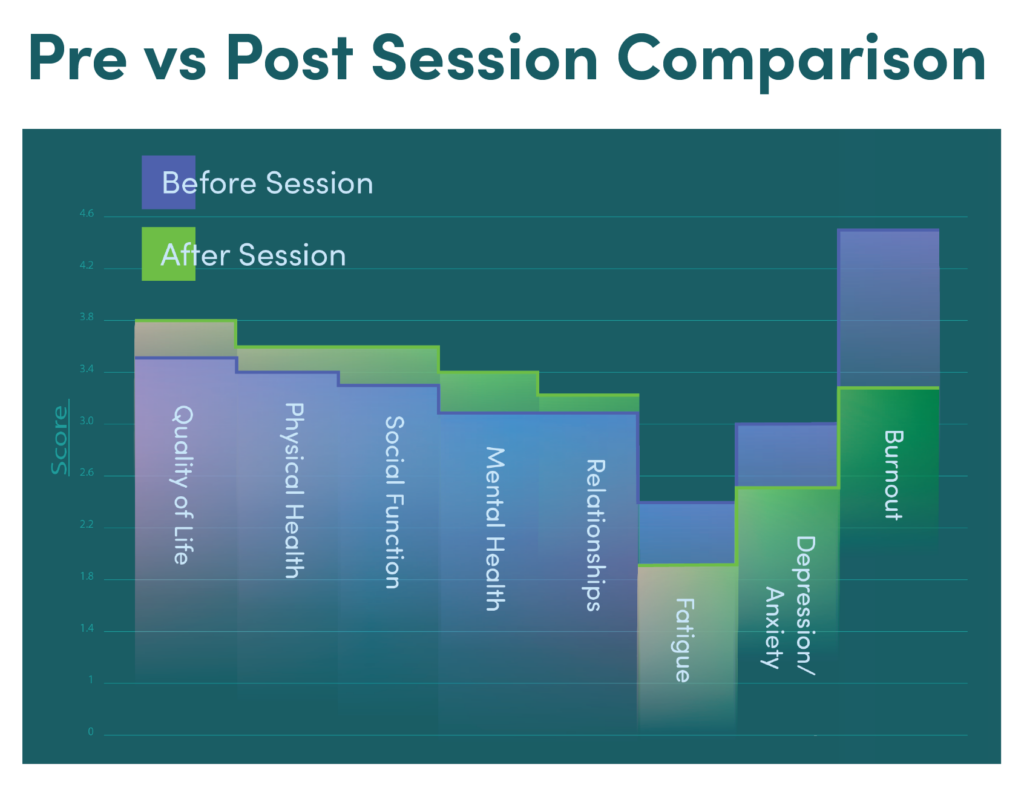
Participants experience improvements on a range of outcome measures including decreases in depression and anxiety, and increases in quality of life, mental health, and social function.
Data like this raises the bar for naturalistic psilocybin research and provides a critical window in the everyday use of psilocybin and psilocybin containing mushrooms. With Denver decriminalizing psilocybin in 2019 and Oregon passing a psilocybin therapy and general drug decriminalization initiatives in 2020, broad reaching research initiatives like ours are more critical than ever. Data can help drive changes in public policy and ensure the best possible public health and personal outcomes can flourish.
Our Co-Founder Del Jolly presented these preliminary findings to the Denver Mushroom Review Panel. The data can help show not only that psilocybin decriminalization initiatives do not destabilize society, but that actually the majority of psilocybin users report great benefit from their experiences. Studies like ours provide real information about how these initiatives shape a city and its residents.
To increase the statistical power of the study and gain a wider perspective, we need as many people as possible to participate. If you are intending on having a psilocybin experience in the near future, are 18 years or older, and can read and write English fluently, we invite you to participate.
Read the press release and our blog post to learn more.
Find the full preliminary report here.
No comment yet.
Join our email list and get immediate access to part one of our psilocybin guide. You’ll also get the latest in how we’re bridging the gap between science and soul: psychedelic research updates, real-world findings, community-driven education, personal stories and expert insights on natural medicine.
Advancing Real-World Psychedelic Research and Science-Backed Education
Unlimited Sciences is provided with a nonprofit status by fiscal sponsorship through Realm of Caring Foundation.
Federal EIN: 46-3371348.
© 2025 Unlimited Sciences. All Rights Reserved.
Designed by Gloss